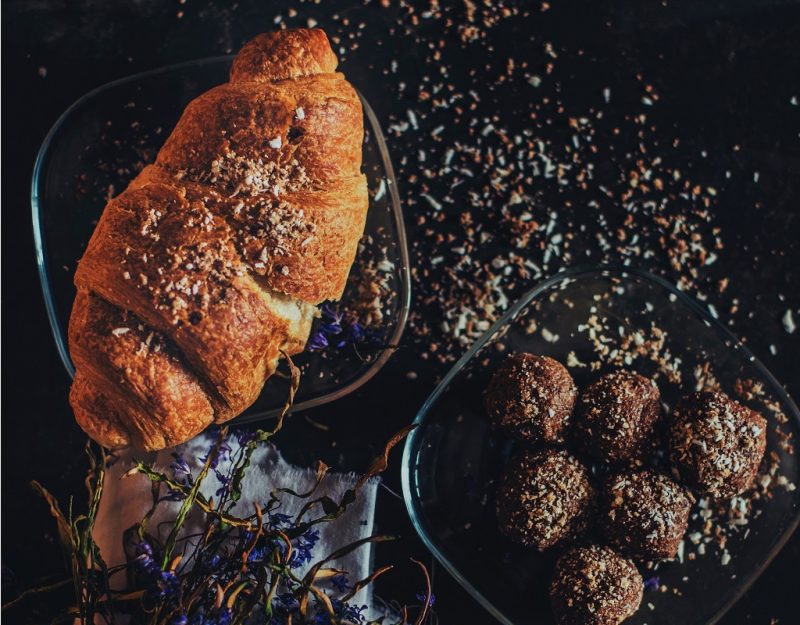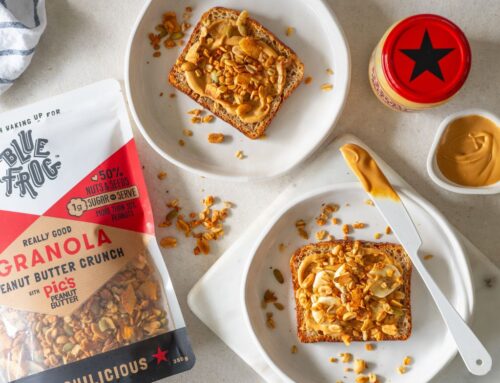Ever since a physician called Robert C. Atkins came up with a no-carb diet, people have been blaming carbs for all their weight-loss problems and putting them in the naughty corner. But carbs aren’t as simple as ‘good’ or ‘bad’; there are so many different types of carbs and they’re not all created equal.
So we’re left asking ourselves, should we include carbohydrates in a healthy eating plan or stick with a low carb diet?
The quick answer is: yes, carbohydrates are an essential nutrient in your diet that provide the energy your brain and body need to function. The long answer is: not all carbohydrates are created equal, so it helps to know which carbs provide more nutrients than others.
The importance of carbs
Carbs are to our diet what petrol is to a car – a primary energy source. And the vitamins, minerals and fibre in carbohydrate-rich foods help keep us healthy. “Extreme diets that cut out all sorts of carbs only provide temporary weight loss and can cause unpleasant symptoms like headaches and tiredness,” says Weight Watchers nutrition adviser, Emma Stirling.
Your body breaks carbs down into simple sugars that it can use immediately, or store, as fuel. If your body isn’t receiving these carbs, it can start to break down your muscle tissue to get the fuel it needs from there instead!
It’s about balance
Some people try to steer clear of carbs fearing that a piece of bread or a jacket potato will go directly to their thighs. But it’s not carbs alone that pad the curves. Losing weight is all about the kilojoules. Eating more kilojoules than you need – whether they come from protein, carbohydrates or fat – results in your body converting the excess into fat.
It’s not only the nutrients found in carb rich foods that make them an important part of any healthy eating plan. The types of food you choose can affect your feelings of eating satisfaction and your ability to maintain your weight loss. Picking carbs in a way that’s right for you may make the difference between long-term weight-loss success and just following another diet.
Including the right carbs
Not all carbohydrates are created equal. Some are loaded with vitamins, minerals, fibre and disease fight antioxidants. Others are packed with sugar and empty kilojoules – this means they contain few if any nutrients. And then other carbs fall somewhere in the middle.
The key to successfully implementing carbohydrates into a healthy eating plan is choosing the right ones. When planning a meal, think of carbs in terms of their nutrient density and the fibre the food provides. A couple of store bought biscuits, for example, may have the same kilojoules as a bowl of porridge, but the porridge will also provide a large nutritional payoff, whereas the biscuits have little nutritional density and won’t leave you feeling satisfied (meaning you’ll just eat more).
Quality carbs
Quality carbs include whole grains, whole foods and slow release foods.
- Whole grains such as brown rice, wholemeal pasta, wholemeal or multigrain bread, rolled oats, and high-fibre breakfast cereals are minimally processed and provide many essential nutrients as well as carbs. For example, they are rich in fibre, which aids in healthy digestion. Plus, they fill you up more than their highly processed counterparts.
- Slow-release foods such as Basmati and Doongara rice and pasta are carbohydrate-rich foods with a low Glycemic Index (GI). Because the energy from them is released into your bloodstream slowly, you’ll feel fuller for longer and will have an easier time managing your hunger.
Other quality carbs include:
- Starchy vegetables such as beans, carrots, corn, and jacket potatoes and fruits such as peaches, apples, berries, and melons. All are rich in nutrients that reinforce a healthy diet.
- Low-fat dairy products, including skim milk and skim or low-fat yoghurt which are rich in bone-building calcium.
Carbs to look out for
Carbs to watch include sweets, cakes and savoury snacks.
- Sweets and snack foods such as cookies, cakes, ice-cream, chocolate, chips, French fries and flavoured crackers are very concentrated sources of processed sugars and fat. These foods, along with jams and jellies, honey, table sugar, and soft drinks, provide a lot of kilojoules with hardly any nutrients. What they do deliver is a high level of eating pleasure. Sometimes, just a small amount can be enough to satisfy the need for an indulgence.






It’s good to see an article about carbs that is talking about balance. I feel that aside from the real junky food, we just need to balance food. Carbs aren’t evil, sugar isn’t evil, fat isn’t evil. But we do need to get the balance right when we eat.
My husband came home the other day saying about going carb free but reading this says you shouldn’t as you may lose weight temporarily but suffer from headaches and tiredness this article is great in saying everything I needed to know about carbs and that we really do need them but eating the more healthy carbs is better of course.
I think balance is really the key, however some people are better eating carbs than others. I mean everyone is different and reacts to different foods differently. I have recently dropped the amount of carbs I consume quite dramatically due to tummy problems and without even trying I have dropped about 4kg and feel really good!! I do still eat carbs though, just not as much as I used to (I was eating far too many) 🙂
I found this a very interesting read. Yes I believe too like it says in the article everyone needs some sort of carbs to burn off and provide energy your body needs. It is a vital part of our diet but getting those right carbs is a different story eh. Lots of people try using the wrong carbs or having too many carbs in their diet and I feel that that’s where people go wrong to be honest.
I definitely do not feel as feel if I don’t eat carbs – I love brown rice and have this with so many dishes. Had not really thought about dairy products as being carbs as well.